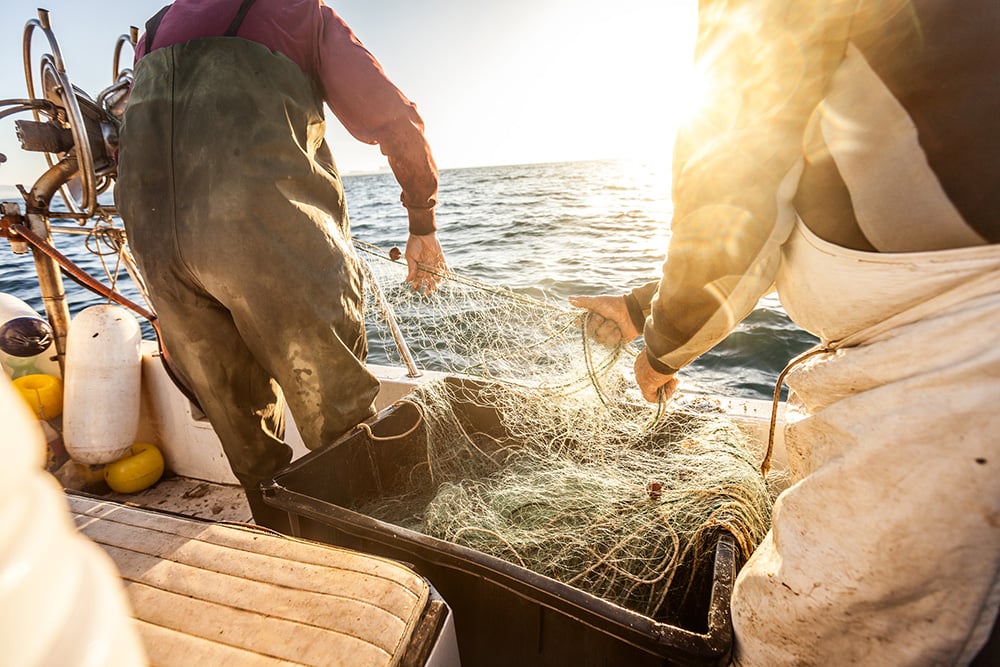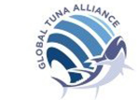
Around half of all fish and seafood consumed globally is harvested from naturally occurring populations of fish in our waterways or oceans across the world. These populations are of public value, contributing to the health of our marine ecosystems and planet, and supporting the communities of millions of people around the world as producers and consumers.
However, around 90% of fisheries around the world are either fully fished or overfished which means there is little if any capacity for increased pressure on existing commercial stocks. As part of our support for responsible production and consumption we offer one of the widest ranges of fresh wild caught seafood of any major supermarkets in the UK and encourage consumption of locally caught species outside of the big 5 - cod, haddock, tuna, salmon and prawns. This approach is designed to help reduce pressure on major commercial stocks, improve the balance of diets and can be purchased from our in-store fish counters with guidance on preparation and cooking from our craft trained fishmongers.
A large proportion of this wider range of fresh seafood we stock is British, sourced from the productive mixed species fisheries in the South West of England, such as sprats, monkfish, gurnards, pouting and scallops. Many fisheries in this area aren’t certified and work needs to be done to help improve their management. We’re committed to supporting this improvement and are working with like minded suppliers and stakeholders on the delivery of credible improvement programmes that create this pathway.
Vessel standards
We recognise that fishing is one of the most dangerous professions in the whole world. As a buyer of seafood we have a responsibility to ensure that fishermen and women are suitably cared for as they undertake their work. Traceability is important in this area to ensure we understand and have oversight of who is catching the fish we buy and we require traceability back to vessel for any seafood we buy.
We continue to work on the development of systems with our suppliers to minimise the risk of illegally caught seafood entering our supply chain. For many years we have also supported the development of vessel standards to help boats catching our seafood demonstrate they are meeting high industry standards - the Seafish Responsible Fishing Scheme. As ownership now transitions to Global Seafood Assurances and the development of an international standard we will continue to support and promote its adoption in our supply chains.
We also continue to work with a range of stakeholders as participants in groups like the Seafood Ethics Action Alliance to help better understand the working conditions in our global supply chains and how to ensure the rights of fishermen are upheld. Click here to visit their website for more information.
Tuna
Tuna are a unique species, highly valuable, highly migratory with truly global ranges. The management of the species requires collaboration and agreement across many countries which can create challenges for particular stocks. Through our participation with partners like the ISSF and participation in the Global Tuna Alliance, we continue to put forward a voice for improvement in the management of different stocks.

Since 2015 our policy has been to source tuna from vessels that use pole & line capture methods or from a catch that has not used Fish Aggregation Devices (FADs). FADs are floating objects used by fishermen to attract local populations of fish, however they have been associated with pollution, entanglement of valuable marine species and unwanted bycatch.
![]()
We have worked closely with our suppliers and specialist third parties and before any tuna caught without the use of FADs is supplied to us it is audited to ensure the credibility of these claims and their supply chain controls. The capture method and area of catch is labelled on all our products.
Marine pollution
Around 10% of all marine litter is derived from the fishing industry so we recognise our supply chain has a big part to play in supporting the reduction of marine litter and helping with the clean up of our oceans. Since 2018 and 2019 respectively, we have supported Fathoms Free and Odyssey Innovations in the South West of the UK, home to important and productive mixed fisheries that supply our fresh fish counters. This has helped support volunteer conservation organisations fund clean up activity in around the South West coastline and is helping provide end of life recycling solutions for fishermen.
We also recognise the value of the work the Global Ghost Gear Initiative has undertaken in identifying best practice for the fishing industry and draw upon their guidance when reviewing prospective sources of fish and seafood.
The Net Regeneration Scheme: a pioneering solution for recycling fishing gear in the UK by Odyssey Innovation Ltd from Odyssey Innovation on Vimeo.